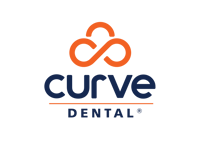Preparing to Start Your Own Dental Practice?

Starting your own dental practice is a rewarding yet complex journey. While clinical expertise is vital, the transition from practitioner to business owner requires strategic planning, financial acumen, and the right tools. Success hinges on preparation—ensuring you have the qualifications, resources, and systems to navigate the challenges ahead.
Understanding the Road Ahead
Owning a dental practice is not just about treating patients—it's also about running a successful business. You'll wear many hats, from clinician to manager to marketer. It’s essential to understand the full scope of what lies ahead. Understanding practice management fundamentals will set you up for long-term success.
Strategic Planning: Your Blueprint for Success
A well-thought-out strategic plan is your roadmap to achieving your goals. This plan should cover market research to understand your target market, competition, and community needs; finding a location that is convenient for your patients and suited to your practice; defining the range of services you will provide; and hiring skilled staff who share your vision and values.
Building a Strong Foundation with the Right Tools
A key component of readiness is leveraging technology to manage day-to-day operations efficiently. Curve Dental’s cloud-based software offers an all-in-one solution, simplifying scheduling and billing, patient communication, insurance and claims management, and integration with leading software tools like Pearl® Second Opinion, Birdeye®, Bluefin®, Patient Prism®, and Weave®. By combining strategic planning with innovative tools, you can focus on what you do best—providing exceptional patient care.
Building Your Patient Base Through Strategic Marketing
Effective marketing is the foundation of a growing practice. Establishing a strong brand identity that reflects your values helps differentiate your practice in a competitive landscape. A well-designed website, active social media presence, and positive online reviews enhance credibility and attract new patients. Beyond the digital realm, patient referrals and community engagement play a vital role. Participating in local health fairs, sponsoring events, and offering educational seminars can build rapport with potential patients.
Ensuring Profitability with Smart Financial Management
A successful practice requires careful financial oversight. Budgeting and forecasting are essential to maintaining a healthy cash flow and setting realistic financial goals. Managing the revenue cycle—ensuring timely billing and collections—keeps income steady and reduces financial strain. Cost control is equally important, requiring regular expense reviews to identify savings opportunities without compromising quality. A well-managed financial strategy allows a practice to remain profitable and grow.
Navigating Legal and Regulatory Compliance
Compliance with legal and regulatory requirements safeguards both the practice and its patients. Keeping professional licenses and certifications current ensures credibility and adherence to industry standards. Health and safety regulations must be strictly followed to maintain a safe environment for both staff and patients. Additionally, patient privacy remains a top legal priority, requiring full compliance with HIPAA guidelines to protect sensitive information and maintain trust.
Leveraging Technology for a More Efficient Practice
Technology is revolutionizing dental care, streamlining operations, and improving patient experiences. In addition to utilizing Curve Dental, practices can enhance efficiency with tools such as telehealth services, which expand access to care through virtual consultations. Digital marketing powered by data analytics allows for smarter marketing decisions, optimizing patient engagement. Interactive tools and mobile apps can further support patient education, empowering individuals to take an active role in their oral health.
Staying Ahead Through Continuing Education
Dentistry is constantly evolving, and staying current with advancements is essential for maintaining a competitive edge. Attending workshops and conferences offers valuable insights into emerging trends and fosters professional networking. Membership in organizations like the American Dental Association (ADA) provides access to industry resources and support. Online learning opportunities, including webinars and digital courses, make it easier than ever to expand knowledge and refine clinical skills.
By integrating strategic marketing, financial management, compliance adherence, technological advancements, and continuous education, dental practices can position themselves for lasting success while delivering exceptional patient care.
Common Challenges New Dental Owners Face
While the path to practice ownership is exciting, it comes with its fair share of challenges. Here are some common obstacles and how they can impact your practice:
-
Financial Constraints: Difficulty in securing financing can delay the launch of your practice, increasing pre-opening costs and stress. Poor cash flow management can lead to an inability to pay staff or suppliers, affecting daily operations and patient care.
-
Regulatory Compliance: Failure to comply with regulations can result in hefty fines, legal fees, and even temporary closure. Non-compliance can damage your practice's reputation, leading to a loss of trust from patients and the community.
-
Staffing and Human Resources: Challenges in recruiting and retaining staff can lead to understaffing, increasing the workload for existing staff and potentially causing burnout. Team turnover can disrupt patient care and continuity, leading to dissatisfaction and loss of patients.
-
Patient Acquisition and Retention: Inadequate marketing and patient retention strategies can result in a low patient base, reducing revenue and making it hard to cover expenses. Inability to compete with established practices can limit growth and expansion opportunities.
-
Operational Efficiency: Inefficiencies in scheduling, workflow, and inventory management can lead to increased operational costs and waste. Poor operational efficiency can lead to long wait times, scheduling errors, and a negative patient experience.
-
Financial Management: Inadequate budgeting and forecasting can lead to unexpected expenses and financial instability. Poor revenue cycle management can result in delays in billing and collections, leading to cash flow issues.
-
Legal and Ethical Issues: Non-compliance with legal and ethical standards can result in lawsuits, which are costly and can damage the practice's reputation. Ethical lapses can erode patient trust and loyalty, impacting patient retention and practice reputation.
-
Work-Life Balance: Poor work-life balance can lead to burnout, affecting your ability to manage the practice effectively and provide quality care. It’s common for new practice owners to struggle with balancing professional and personal responsibilities and to have periods of fatigue. During these times, the encouragement and advice of mentors are highly beneficial.
Conclusion
Starting a dental practice is an ambitious and rewarding endeavor, but it comes with its fair share of challenges. By being aware of these potential obstacles and proactively addressing them, you can set yourself up for success. Combine strategic planning with innovative tools like Curve Dental®, and then focus on patient care to navigate the exciting yet challenging path of practice ownership.
Curve software is designed to optimize workflows, patient and team experience, data protection, communications, and revenue management. Over 80,000 dental professionals trust Curve to streamline their practice operations, enhance patient engagement, and improve overall efficiency in delivering exceptional dental care.
Schedule your personal demo and consultation today!
*This content was partially generated by artificial intelligence. It may contain errors or inaccuracies, and should not be relied upon as a substitute for professional advice.

Curve Dental
Welcome to the official blog of Curve Dental. Serving up content about the team behind Curve Dental
